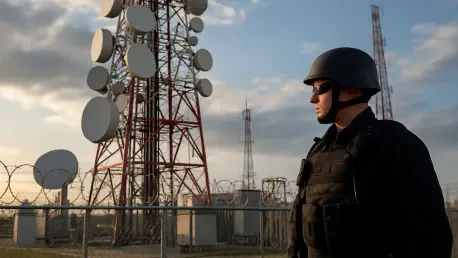Recently, a severe incident in Van Nuys, California, has brought to light the alarming trend of deliberate attacks on communication infrastructure across the United States. This particular event, which occurred on June 15, resulted in widespread service disruptions and revealed the vulnerabilities present within the nation’s critical technological systems. As communications lie at the heart of public safety and national security frameworks, this attack stresses an urgent need for stronger countermeasures.
Detailed Coverage of the Event’s Highlights
In Van Nuys, the calculated vandalism of fiber-optic cables incapacitated the services of tens of thousands of Charter Communications customers. The impact was not limited to ordinary disruptions but extended to crucial sectors like emergency services and military operations. With severed 911 communications over a span of 30 hours, the incident posed a significant risk to human life by hampering access to emergency assistance. This disruption demonstrates cyber-vulnerability, showing how easily infrastructure vitals can be undermined.
The calculated nature of the attack, labeled “an act of domestic terrorism” by Charter Communications, highlights the growing seriousness of these threats. The incident adds to a concerning upward trend of intentional disruptions, with similar attacks reported in multiple states, including Kansas and Texas. Such episodes underscore the need for a unified legislative approach, emphasizing prosecution and heightened security around vital communication networks. Industry experts stress the urgency to criminalize these acts under federal statutes to safeguard these essential services.
Stakeholders are pushing forward with initiatives aimed at protecting the integrity of the infrastructure. Charter Communications has implemented several counteractive strategies, including rewards for information leading to perpetrator arrests and providing bill credits to affected customers. These measures seek to counteract the immediate damage and foster an environment where such vulnerabilities are proactively addressed. A legislative movement in states such as Alabama, Indiana, and Texas is aligning local legal frameworks to make infrastructure sabotage a criminal offense, echoing federal measures against tampering with communications systems.
Event Summary and Its Impact
The incident in Van Nuys catalyzed an immediate response from public and private sectors engaged in bolstering defenses against infrastructure threats. It underscored the urgent need to treat such acts with the seriousness they warrant, recognizing both their immediate impacts and their broader implications for national security. The measures taken post-incident indicate a pathway toward improving resilience for communication networks across the country. The event’s outcomes will likely guide future strategies to deter such attacks, suggesting a more secure approach to infrastructure management in the future. Consequently, there is promising momentum toward reinforcing defenses, ensuring such vulnerabilities are less likely to be exploited moving forward.









